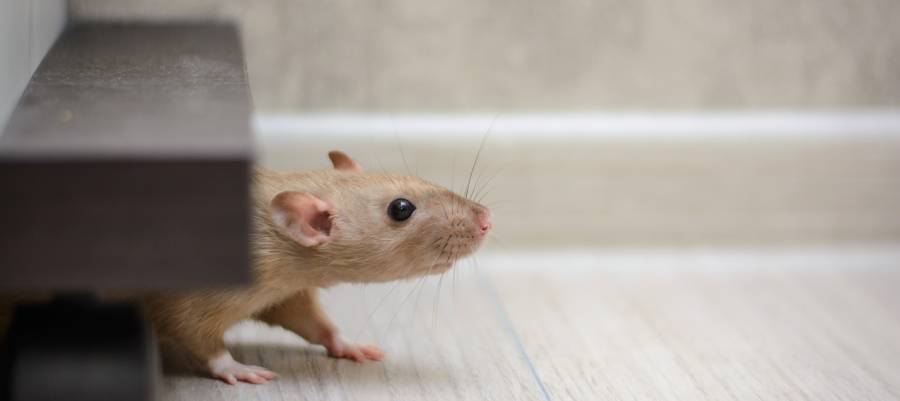Winter in Iowa can be harsh, and while we can bundle up to keep warm, the same can’t be said for pests like rats and mice. They look for warm places to nest and feed, and with that in mind, your car can become the perfect spot. Springer Professional Home Services has been handling rodent infestations for over 30 years, and in that time, we’ve learned that rats and mice will take any opportunity to get indoors, which doesn’t always mean in your home. Sometimes it means in your vehicle. Because of that, it’s important to know the warning signs of rats in your car, the risks they pose, and what we can do to help.
Signs Rodents Have Been in Your Car
Be they rats or mice, rodents are known for three main habits: biting, nesting and defecating. Anywhere you find these three phenomena, you’re likely to find rats and mice as well. Some of the damages are things you’ll be easy to see, like droppings (that may look like coffee beans or grains of rice, depending on the rodent), or tears in the upholstery to get material for nests. These nests will usually be in warmer spots around your car, such as behind heat ducts or under the center console.
It’s vital to contact a pest control company for treatment as soon as you notice any of these signs. With the amount of time we spend in our cars with every passing year, it’s important to ensure the vehicles we drive are operating safely.
Have a pest problem? We can help!
The Danger Rodents Pose
The visual signs of rodent damage in your car are concerning. What’s especially nefarious, however, are the forms of damage that you aren’t able to see. If a rat is able to chew at the plastic panels on your dashboard, it’s not too far of a stretch for them to chew one of the vital wires that your car needs to operate properly. If that wasn’t enough, rat and mouse droppings carry pathogens that can cause illnesses like salmonellosis and hantavirus. So, if a rodent makes a nest behind your heat vents, you run the risk of circulating particles of pathogens throughout your vehicle.
You don’t want to put your passengers or yourself at risk. That’s why it’s so important to seek professional pest control treatment before the problem spreads.
Springer Professional Home Services for Rat and Mouse Control
If you suspect rodents in your car, don’t hesitate to act. If you wait too long, there’s a very real possibility of the rats or mice getting into your home. But if you make an effort to clear your car of rodents, only to find more moving in soon after, they may already have a nest in your home. Luckily, Springer Professional Home Services can safely remove existing rodent nests, as well as take exclusionary efforts to prevent future infestations. You can trust the team that has been caring for households in Iowa since 1989 and know that whatever work we do is done with your comfort and safety in mind. To learn more, contact us today!


